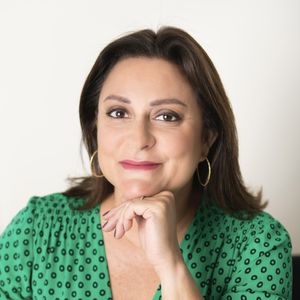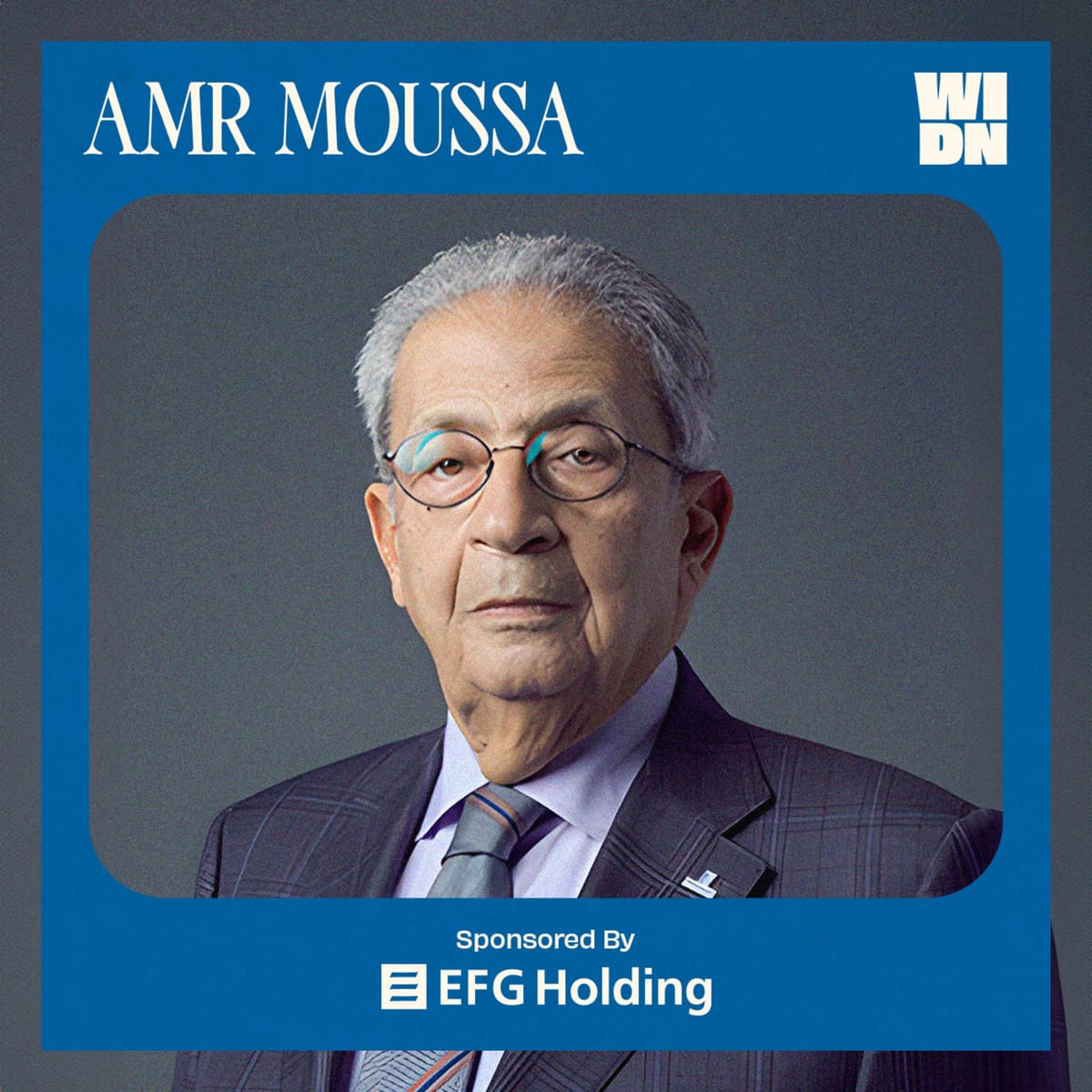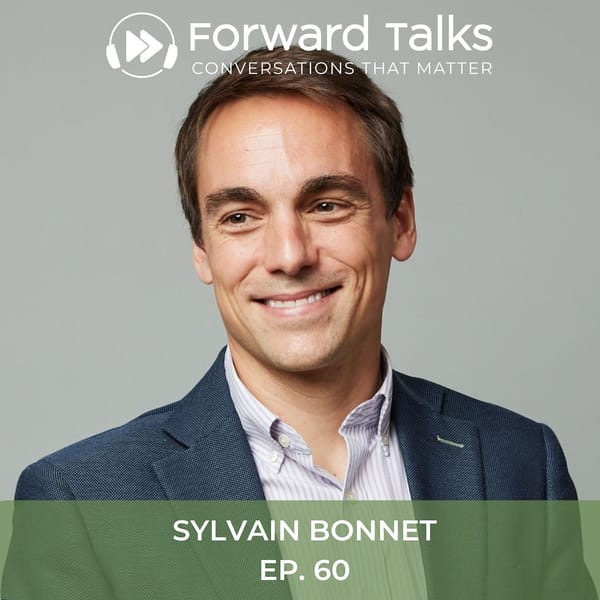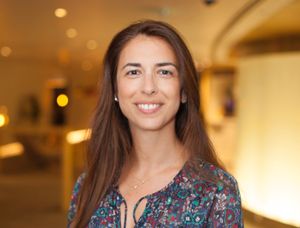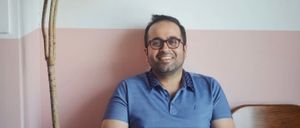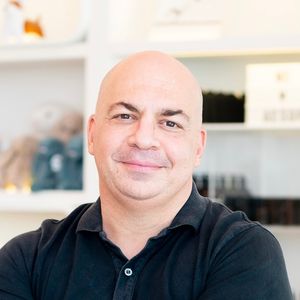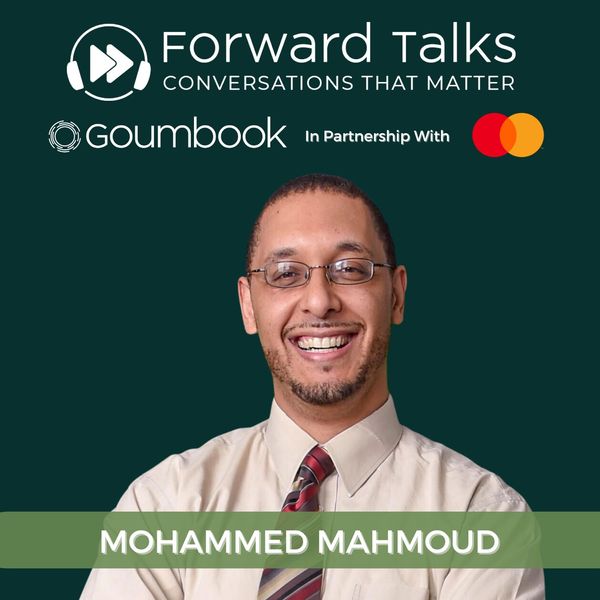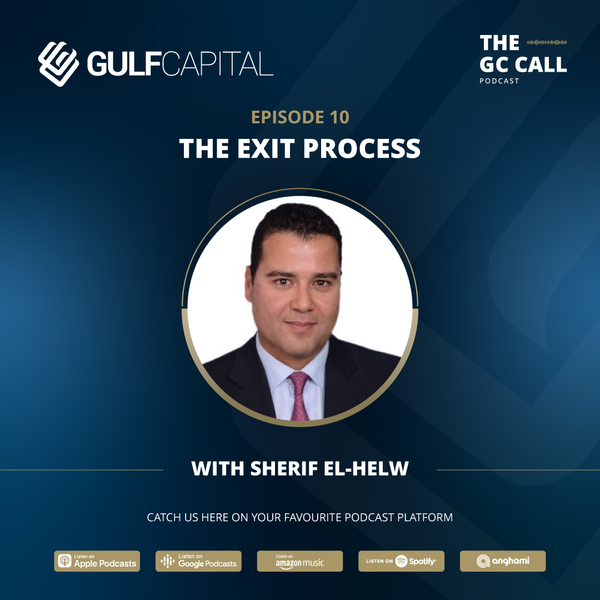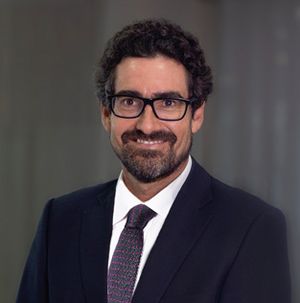His Excellency Amr Moussa has had a distinguished career in the world of international diplomacy and cooperation. He served as the Ambassador of Egypt to India for 3 years in 1983, he was the Permanent Representative of Egypt to the UN in 1990, he was the Foreign Minister of Egypt for 10 years until 2001, when he became Secretary-General of the League of Arab States.
EFG Holding, a trailblazing financial institution with a universal bank in Egypt and the leading investment bank in the Middle East and North Africa (MENA).
He continues to leave an impact today as an elected member of the Panel of the Wise, a critical pillar of the Peace and Security Architecture of the African Union, and as Chairman of the High-Level Advisory Council to the High Representative for the United Nations Alliance of Civilizations or UNAOC.
Amr Moussa has also published the the first part of his memoir, Ketabiyah, with its English translation coming soon.
Transcript
Malak Fouad
[00:04 - 00:31] Welcome to a brand new season of What I Did Next from A&T Media. I'm Malak Fouad, your host. I welcome a new guest from the region on each episode, and we take a deep dive into their lives' most pivotal moments. On today's episode, we have the former Foreign Minister of Egypt, Amr Moussa, who tells me why he's optimistic not just for the future of Egypt, but also for our region as a whole.
Amr Moussa
[00:32 - 01:01] I believe that we have a chance in the Arab world, with Egypt and Saudi Arabia leading this region and setting the rules the way, as you see, in the rest of the problems we have. Problems in Sudan, in Libya, in Iraq, in Syria, in Lebanon. And Egypt is pivotal for these questions. Absolutely. So helping Egypt is important for the future personality, the future peace.
Malak Fouad
[01:07 - 01:45] His Excellency Amr Moussa has had a distinguished career in the world of international diplomacy and cooperation. He served as the Ambassador of Egypt to India for three years in 1983. He was the permanent representative of Egypt to the UN in 1990. He was the Foreign Minister of Egypt for 10 years until 2001, and then he became Secretary General of the League of Arab States. Today, he continues to leave an impact as an elected member of the Panel of the Wise, a critical... pillar of the peace and security architecture of the African Union, and as Chairman of the High Level Advisory Council to the High Representative for the United Nations Alliance of Civilizations,
[01:45 - 02:15] or UNAOC. Recently, Amr Moussa has also published the first part of his memoir, and an English translation is coming out soon. As someone who's a student of international relations and enjoys discussions about geopolitics, being able to sit down with Amr Moussa and pick his brain off the ground is a great achievement. His career is filled with pivotal moments and pivotal roles, beginning with, of course, his role as Ambassador to India.
Amr Moussa
[02:15 - 02:38] I wanted to go to India because I thought I spent too much time in the multilateral system. I want this bilateral. A very tough choice was put before me. I was the Deputy Ambassador in New York, so I was offered the job of Chief Ambassador in Geneva, the other capital of the United States.
Malak Fouad
[02:38 - 02:39] Of the United Nations.
Amr Moussa
[02:39 - 03:08] Or, if you want and insist, you go to India. I wanted to go to India. And there were kind of different opinions between the foreign minister, who was General Kamal Hassan Ali, who became Prime Minister after that, and Boutous Ghali, who insisted that I should go to Geneva. Of course, the minister prevailed over the Minister of State. I went as a ambassador to India.
[03:09 - 03:45] And Boutous Ghali made of me an example, telling everybody, you see, Amr Moussa had the chance to go to Geneva or wherever he wanted to go, but he chose India. So just to convince the younger generation to make their choices after thinking of it and believing in what they want. So I went there. I enjoyed the Indian, India in general, the Indian society. The Indian people, they are funny, but they are intelligent. They are the same like us. Yes.
[03:45 - 03:58] If you compare, if you ask an Indian a question and ask an Egyptian the same question, the answer will be the same. I enjoy them. They are intellectual.
Malak Fouad
[03:58 - 04:00] And they have a very rich history.
Amr Moussa
[04:00 - 04:37] Very friendly. They are generous. There is a certain, what can I say, certain relationship between the Indian person and the Egyptian person. That's why I liked that. I spent three years. So the foreign minister at that time, Dr. Abdul Nagid, told me that we are ready to give you one more year. And that was at the height of my pleasure in India, knowing everybody moving all over India. The children were at schools, good schools.
Other speaker
[04:38 - 04:39] They were happy there.
Malak Fouad
[04:39 - 04:40] Very happy. Yes.
Other speaker
[04:40 - 04:44] And I decided to put an end to that. Dr. Abdul Nagid was astonished.
Amr Moussa
[04:44 - 04:50] So ambassadors usually to say, yes, of course, one more year is fine. Especially if the post is exciting.
Malak Fouad
[04:51 - 04:51] Yeah.
Amr Moussa
[04:51 - 05:05] It's exciting. So I said, no. He asked me, why? I said, because if I stay one more year, I'll be spoiled. And I'll never want to leave. Yes. I will come after that year asking you to add a fifth year. So I'm sorry. I have to.
Malak Fouad
[05:05 - 05:06] That's very funny.
Amr Moussa
[05:06 - 05:13] Put it to. Yes. Put that. This. Fine experience to an end. Really, after that, after that, I became foremost.
Malak Fouad
[05:13 - 05:28] That's amazing. I'd like to get your opinion on Egypt's place in the world today and with a focus maybe on Africa. What role do you see it playing going forward?
Amr Moussa
[05:28 - 06:08] First of all, Egypt as a country and a society and the culture belongs to several areas geographically, culturally. And in some of them, we were always leaders. In fact, in most of them, we were always leaders. We are an Arab country. So we have this Arab society of nations. We are part of it. And the bigger part of it, the majority of the population, Arab people, Egyptians.
[06:11 - 06:48] We are African people. We are an African country. This is part of our identity. We belong to the continent. And so many things have been done in Africa with a lot of Egyptian contribution to the events in Africa at the time of decolonization, the era of decolonization. Egypt helped a lot to the revolutions in Africa. And their struggle. For independence. Egypt was very clear in its position against apartheid.
[06:49 - 07:28] Egypt was the country of refuge to many leaders. In fact, all of them. Absolutely. Passed by Cairo, by Egypt in their journey from oblivion to the presidency and leadership. So this is another dimension of Egyptian. This is another dimension of Egyptian identity. Then comes the Mediterranean. Of course. We are a Mediterranean country. Of course. That's why you have a lot of exchange of interaction with European countries, European culture. Then we are part of the Muslim world. Then we are part of the South.
[07:29 - 07:31] Asia, Africa, Latin America.
Malak Fouad
[07:32 - 07:32] We have many roles.
Amr Moussa
[07:33 - 08:10] We have many roles. But we have many aspects that form the personality of Egypt. And the personality is not only just to exist, but how to contribute. And we were the most important contributor to the developing the Arab societies, the Arab culture, the Arab knowledge, the Arab education, the Arab life. Egypt, in fact, contributed a lot to that. The soft power of Egypt also played an important role.
Other speaker
[08:10 - 08:10] Yes.
Amr Moussa
[08:11 - 08:21] You will recall Umm Kulsoom, you will recall Abdel Wahab, you will recall Ahmed Shaoui, the most famous poet and others.
Malak Fouad
[08:22 - 08:24] Naguib Mahfouz, the list is long.
Amr Moussa
[08:25 - 08:39] I'm talking about the beginning. Ah, yes, of course. The 30s and the 40s and the 50s and the 60s. The list is long. That gave the Egyptian contribution and then the Egyptian leadership as was personalized in Gamal Abdel Nasser. Of course.
Malak Fouad
[08:40 - 08:40] Yes.
Amr Moussa
[08:40 - 08:54] Yes. And then the Egyptian leadership came to liberate our territory from occupation. Anwar Sadat was also one of the big names in the history of Egypt. So that is how Egypt is.
Malak Fouad
[08:54 - 08:54] Yes.
Amr Moussa
[08:54 - 09:34] And the role was played firstly by the soft power of Egypt in the Arab world. Then in Africa was the support in the era of decolonization. Mm-hmm. Mm-hmm. Then in the Mediterranean, in the era of forming the future of Egypt. After the fall of the Soviet Union, after the end of the Cold War, where a lot of activities were centralized in the Mediterranean with a new policies of Euro-Arab dialogue with the Euro or the MENA conference, the MENA identity that Middle East and North Africa.
[09:34 - 10:13] And that was very important. We consider this MENA is just a misnomer. This is the Arab world. This is the Arab world. And with us, there are others. So I just want to highlight how the Egyptian personality was formed. Yes. And in this, we played leading roles that are not forgotten at all. Of course. We go to Africa, they not only remember Abdel Nasser. Yes. They remember other diplomats who stood with them in the United Nations, who talk on their behalf when they were prevented from talking. Yes. That's it. That's it. Cairo was open to them. Yes.
[10:13 - 10:17] They came and lived here and were assisted, etc. So this is Egypt.
Malak Fouad
[10:17 - 10:38] I want to ask you here at this point about the role of the Arab states, because they have not been efficient and effective in coming together in a united voice. What are the problems between these countries that they cannot find a way to speak as one?
Amr Moussa
[10:38 - 10:39] First of all.
Malak Fouad
[10:39 - 10:39] Yes.
Amr Moussa
[10:39 - 10:57] I want you to appreciate. Right. Between the public opinion. Yes. The people. Yes. The young people. Different generation. So when you talk about the Arabs, the relations between governments, but between people, this is not the case.
Malak Fouad
[10:57 - 10:58] Yes. Of course.
Amr Moussa
[10:58 - 11:09] And you should know and I believe you know that what is called the Arab Spring started in Tunis. Yes. With the young man.
Malak Fouad
[11:09 - 11:11] The vegetable seller.
Amr Moussa
[11:12 - 11:49] Everybody all over the Arab world were taken aback and started to revolt and to express refusal to all what happened. And in my opinion, as I said that in my book, you didn't read the book, it is being translated now into English, then into Spanish, then into French. In the book, I said that the immediate reaction to what happened in Tunis was felt among the people, the young people.
[11:49 - 12:25] And therefore, this is the way others, foreigners or whoever in the audience that is not Arab, should know that an event in a remote village, in Tunis, made everybody and pushed everybody into the streets. The people everywhere expressed their dissatisfaction with their governments, with their systems and regimes. Had there been confidence in their regimes, had there been democracy and so on, nobody would have cared.
[12:26 - 12:46] But that was the expression of anger and the reasons of anger are the same in the Arab world. And in fact, in the third. This is an important point for us to know that what is apparent that Arabs are all quarrelling. That's not the Arabs. The Arab people are not quarrelling.
Malak Fouad
[12:46 - 13:26] No, no, the Arab people, I agree with you and there is a commonality between the populations. But as a region, we are no longer reliant or we should no longer be reliant on Western powers telling us what to do, and implementing what they want. We as a region are not reliant on the Arab world. countries have a lot of power that we are not using. Saudi Arabia, the UAE, Qatar, they have power, financial power, economic power that they can impose. And of course, we know that Egypt is very instrumental in trying to solve and mediate this issue right now. And Egypt has always played
[13:26 - 13:33] this role as mediator. Is the role that Egypt is playing as strong as it always was? Or are there
Amr Moussa
[13:35 - 14:05] going to get involved? Look, we have a lot of problems. I claim that for over 70 years now, since the final days or years, final years of King Farouk, Egypt was not doing fine. Yes. Then when the revolution, 1952, changed the system, came up, the grandeur, the uh, uh,
[14:08 - 14:44] cult of personality, et cetera, prevailed. The real problems that have, in any country, especially in the developing world, will have to be catered to, were not really in the center of attention of those who... Therefore, there was an absence of good governance. Yes. Good governance is not only foreign policy. No. It has to be education. agriculture and etc. There are so many things that you have to cater to insofar as our society is concerned. Absolutely.
[14:44 - 15:17] That there was a lack of this, in particular this thing. Here we have to be, we have to define our position rightly and in a logical and smart way. We cannot deny the dangers of the Palestinian question existing, continuing, etc. or denying. We have to be firm in this, but we have also to put on the same level of priorities the internal policies. Egypt started to do that. Yes.
[15:18 - 15:58] Without ignoring the Palestinian question, but the emphasis would be put, should be put on the issues that would develop and benefit the people. Absolutely. The Egyptian people, the Egyptian citizens. Absolutely. And that is very important. If we succeed in this in the next few years, then Egypt will be in a much stronger position to get back to this Egyptian leadership. Because when I talk about correcting the past mistakes and applying the elements of good governance, I don't only mean the book in the Egyptian book.
[15:59 - 16:32] school but the new norms that i have to deal with the artificial intelligence to deal with the nuclear peaceful uses of nuclear policy climate change and all these and also art culture culture including the music including everything i have to deal with that with an open mind of course this is the 21st century it cannot be a another chance to repeat the same wrong policies of the 20th century and i believe we are doing that i agree so i am not that pessimistic about the
Malak Fouad
[16:32 - 17:05] future yes i i'm also like you not pessimistic when we come back i talk to amra musa about his run for the presidency and how he views his legacy that's right after this break welcome back this is my conversation with his excellency amra musa i want to get a sense of how your experiences were when you ran here for president
Amr Moussa
[17:06 - 17:11] i don't want to go into the politics or all of that you went already into politics by the way
Malak Fouad
[17:11 - 17:18] which is nothing wrong with that what was that like for you to to have run yeah but before
Amr Moussa
[17:18 - 17:53] getting into this i wish to underline yes the fact that this is a transitional time in the region this is not the final station this is just a transitional period where i i i believe that we have time in egypt we have time to move on and assert our role from the right angles right angles that is our education yes is good but at the same time i i believe that we have a chance in the arab
[17:53 - 18:24] world with egypt and saudi arabia together leading this region and setting the rule the rules for the way we deal with the issue of peace in the uh the the phariseean question the way uh as you see in the rest of the problems we have problems in sudan in libya of course in iraq in syria in in lebanon and egypt
[18:24 - 18:55] is pivotal for yes absolutely so you cannot and whoever thinks that egypt would be just put on the uh on the side and let others be you know as you see the issue of peace in the phariseean question that they are mistaken they are mistaken because alone without egypt they were easy praise absolutely they're not experienced enough absolutely absolutely so helping egypt is important for the future personality the future peace the future stability in the region now it
Malak Fouad
[18:55 - 19:01] is a different era explain to me why what what is happening now why is it different now it is
Amr Moussa
[19:01 - 19:37] a different era a different world we passed after the first decade or so after the fall of the soviet union would be one superpower with its policy its philosophy etc uh we had an opinion out and the position at that time we tried to push the palestinian question in order to have a solution of it uh we did not succeed uh not because we failed in our but because the opposition and the the position of the west
[19:38 - 20:16] was not that uh positive or even sincere in trying to solve the palestinian question and is it today as you have seen after what happened in gaza so many western countries was very clear that this is a legitimate for israel to do what they are doing under this claim of uh the right to self-defense which is not correct no it's not because because the occupying power the power that exercises occupation military occupation two lands lands territories that are not theirs do not have the
[20:16 - 20:28] right to self def to defend themselves against the population that are occupied and a weaker population yeah when there is occupation there is also resistance and the power imbalances
Malak Fouad
[20:28 - 20:28] exactly
Amr Moussa
[20:31 - 21:09] they said it that uh that this resistance is they they dared describe it as terrorism no it was resistance because we cannot and should not start by what the events of 7th of october we have to start by the events that caused 7th of october which is the very what can i say condemnable policy and exercise by the occupying power in the occupied territories by treating them as second-class citizens by destroying their homes by trying to expel them
[21:09 - 21:36] yes and refusing to implement any initiative this initiative this has caused anger of course not only among the palestinians among so many among so many people yes so this is what happened this is what is happening and we are not pleased at all we are really there is a wave of anger yes among the population the public opinion all over the arab world muslim world and i would say even the
Malak Fouad
[21:36 - 22:00] jewish world how will the war that's now happening reshape our region i feel like there is going to be a positive shift happening maybe not tomorrow maybe not in a year but because of this generational change this situation the status quo can no longer stand something has to change i think that you are
Amr Moussa
[22:01 - 22:39] saying something will change in the no that's not enough and we should not accept that in order to solve the problem we have today we have to sit down and decide that the military occupation has to come to an end within a certain time frame and soon absolutely yes the lesson we already learned yes the negotiations that took place with the israelis in the 90s failed why because there and talk yeah and the the the another lesson we learned from from them from the israelis
[22:39 - 23:16] that okay there are certain things we can negotiate now and that's things that we have to put to a later uh date it was called the uh final status issues finances means state it means the full rights of the people of course so this time there is nothing called final status code it is all one five it has to be put on the table with whatever time frame we will agree on and the elements one by one according to a a a schedule
[23:17 - 23:52] and of course we also learned that the smiles that we have seen are all fraud absolutely the master and and the and and the the promises that you know if you do this yes the israelis will be calmer quieter they would accept nonsense what is your legacy well i hope that my years as foreign minister especially with the changes i decided and i really put them into effect in the system
[23:52 - 24:29] in the diplomatic system uh be uh one of the basic elements of legacy my of my legacy this is one uh number two the the my work in the minister system that i discovered that it is not forgotten at all by so many generations until now uh many uh high officials i would say even presidents in in several countries that are still uh when i go to them and just to say hello they come and say no no no no no stay you have and contribute to social church yes yes yeah the uh
[24:31 - 25:03] My days in the Arab League were also days of more rapprochement and understanding among Arab countries' governments. And we succeeded in doing that. And of course, not the first day, it took us time. But my second term as Secretary General of the League was marked with this rapprochement and understanding that it is good to have a strong Secretary General, then putting obstacles in his place.
[25:03 - 25:43] Some were laughing at that time, saying that the Arab League has become 23 members, because the 22 countries and the Secretary General as members. I would say that many foreign ministers helped me in this. They were convinced of that principle. Saud of Saudi Arabia, King Abdullah of Jordan, who shares the barrier of Iraq, and from the Maghreb, Tunis, Habib bin Yahya, they became friends.
[25:43 - 26:07] And we worked together. And whatever I said, they used to say, all right, we will help.
Malak Fouad
[25:50 - 25:52] Well, thank you so much. I'm thrilled that you were on the show. This was so wonderful to have you.
Amr Moussa
[25:52 - 26:06] Thank you very much. I enjoyed talking to you. This interview will be watched by people who are really interested in knowing some stories about how things will go in this. Thank you so much.
Malak Fouad
[26:11 - 26:49] That was my conversation with Amr Moussa, former Foreign Minister of Egypt and former Secretary General of the League of Arab Nations. In recognition of his work, Amr Moussa was awarded the Order of the Nile from Egypt, the Order of the Two Niles from the Sudanese Republic, the Supreme Order of the Renaissance Jordan, a high order from the state of Qatar, the rank of commander first class of the Royal Order of the Polar Star of Sweden, in addition to orders and decorations from Brazil, Argentina, Germany, Ecuador and Venezuela. If you're a member of the show, you'll get a bonus episode
[26:49 - 27:10] next week with more from my conversation with His Excellency Amr Moussa. You can find extended clips from our episodes on our YouTube channel and you can connect with us on Instagram X and on LinkedIn. Just search for What I Did Next. Thank you for joining me today. You've been listening to What I Did Next from A&T Media. I'm Malak Fouad and we're produced by Chirag Desai. See you in a couple of weeks.

